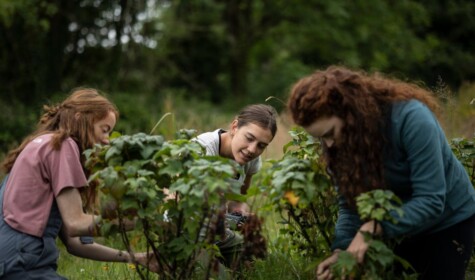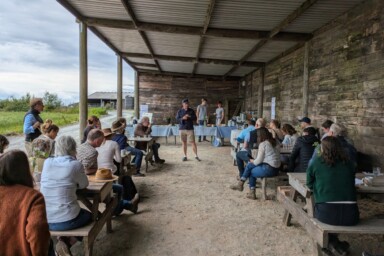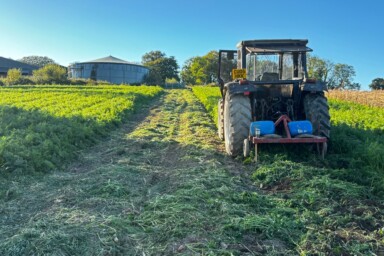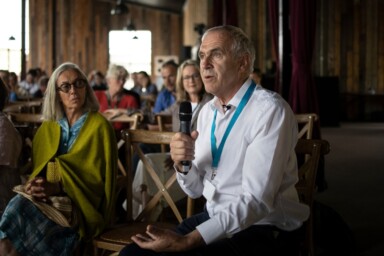Arriving at the Oxford Real Farming Conference this year, I was delighted to see so many young people in attendance. And it’s no wonder, with sessions including ‘Overcoming barriers to new entrants’, ‘The emergent generation: Building an agroecological future’ and workshops on intergenerational story sharing and land access.
I was able to attend just one of those sessions, but it gave me a flavour of the types of youth-led agroecological activity taking place across the UK, and I was excited by what I heard. During the ‘The emergent generation’ session, the FarmEd team together with a group of young students, described the intention behind setting up a new network of young regenerative thinkers and agroecological champions. The group of 18‒26-year-olds, known as the ‘Emergent Generation’ are united by a shared passion for food systems that protect and enhance the environment, create thriving communities and deliver affordable healthy food.
Importantly, the programme was designed by young people, for young people. As one of the members explained, a small group were initially involved in the co-creation of a three-day programme to be held at FarmEd in Oxfordshire, including farm walks, sessions on topics such as eco-entrepreneurship and western perceptions of sustainability, and practical explorations into dry-stone walling, foraging and rearing pasture-fed livestock. The programme appealed to young people from a diversity of backgrounds, including farmers, growers, chefs, nutritionists and artists from across the UK – many of whom were in the room. Their shared stories, experiences and plans for the future made for an inspiring and hopeful hour and a half.
Intergenerational knowledge and skills sharing was also a key theme featuring on the programme at the ORFC, with a session on ‘Intergenerational land ownership beyond the family tree’, and another on ‘Intergenerational story sharing for building a youth-led agroecological movement’, led by the LWA’s youth branch FLAME. Increasing an awareness of agroecology and food justice in generations facing a widening disconnect from the land was explored as a topic, as was the importance of diverse forms of land ownership to increase resilience.
A key part of the broader discussion around increasing awareness is the role of education in enabling the transition to more regenerative food and farming systems. For young people to develop an understanding of the story of their food from an early age, food and farming must be integrated into the national curriculum in schools. The Harmony Project has been working on this idea in partnership with the Sustainable Food Trust (SFT) for some time, with teaching resources designed to explore topics such as ‘the food we get from farms’. For young people interested in pursuing a career in food and farming, there are options, including agricultural colleges, specialist courses and one-off programmes such as FarmEd’s ‘Emergent Generations’ course or the Eden Project’s recently launched Positive Food Futures programme. But how many young people are aware of, or indeed able to experience food and farming education, in combination with practical, hands-on farming and food production?
Farms offer a perfect stage for educational activity, and it is the intention of the SFT to establish a network of farms as educational platforms, offering opportunities for young people to be inspired. Linked to this, the SFT convened a meeting during ORFC involving The Harmony Project, Schumacher College, Eden Project, Ruskin Mill Trust, Ballymaloe Cookery School and FarmEd, to explore the possibility of developing a coalition of organisations and individuals involved in food and farming education, to maximise opportunities for young people. There are others who weren’t at the meeting, so we are keen to involve as many organisations and individuals working in this space as possible.
To enable the transition to more regenerative and agroecological food systems, which is needed now more than ever, education has a vital role to play. For more information about our work on food and farming education or if you are interested in getting involved in this coalition, please get in touch via info@sustainablefoodtrust.org.







